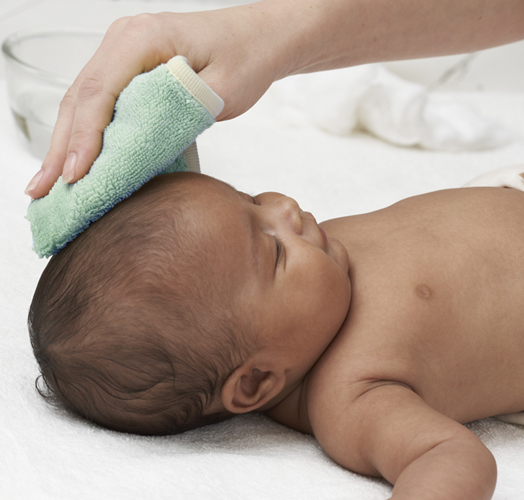Eco issues Raising a “green” baby
An eco-aware approach
to raising your children can be healthier for them, for you, and for
the planet. It can even, as is the case with reusable, cloth diapers,
save you money. This environmentally friendly approach doesn't need to
just extend to diapers—it can also include choosing organic baby
clothes, wooden toys, organic baby foods, and buying second-hand.
| Q: |
Why is diaper choice so important?
|
| A: |
Disposable diapers have an impact on the environment. This
ranges from the materials that are used to make the diapers to the
chemicals released as they decompose. Equally, the distribution chain to
retailers carries a large “carbon footprint.” disposable diapers
contribute to landfill waste and one baby's diapers account for a large
proportion of the total weekly household waste. It is thought that one
baby will use about 5,000 diapers a year, which means that millions of
diapers are used each year in the US alone. There are many other choices
for diaper use today.
|
| Q: |
What happens to a used disposable diaper?
|
| A: |
Dirty disposable diapers can contain the live Polio virus for up
to six weeks, produce methane, and contribute to global warming. Nobody
knows how long it takes for diapers to decompose, but it is thought
that it could take up to 500 years. They can be incinerated, but this
releases carcinogenic dioxins into the atmosphere. If the diapers are
flushed down the toilet, it can get blocked as the liquid-absorbing
material in the diaper expands; if they do get through the sewerage
system they contribute to the pollution of lakes, streams, and oceans.
This in turn has an effect on the flora and fauna of the oceans, one of
the greatest buffers of our planet. Each disposable diaper uses a cup of
crude oil to make and it is estimated that 41 trees are needed in total
per baby, so many millions of trees being used for diapers alone in the
US each year.
|
| Q: |
What is the alternative to disposables?
|
| A: |
Reusable diapers do not contribute to the landfill problem.
Although their washing can have an environmental impact, if the washing
machine is set to “cold” (a temperature lower than 140° F/60° C), and
the diapers are line-dried, there is less environmental impact. This
particularly applies if nonbleached diapers and liners are used and
natural products such as white vinegar and bicarbonate of soda are used
to wash and soften them. With cotton diapers, there are eight times
fewer regenerable materials used and 90 times fewer renewable resources.
They also produce 60 times less solid waste.
|
| Q: |
What other ways are there to go green?
|
| A: |
As well as opting for a greener diaper, there are plenty of
other ways to choose environmentally friendly products for your baby.
Once your baby starts on solids, try to buy unprocessed fresh food
(ideally in season and locally produced), and consider organic products.
Concern about pesticides has led to the creation of a wide range of
organic baby food outlets. Organic food products have a smaller “carbon
footprint,” primarily because they don't use chemical fertilizers. Also
consider buying second-hand or nearly-new items for your baby—clothing,
strollers, and toys, for example. Another way to help the environment is
to wash your baby's clothes at a lower temperature (86° F/30° C), which
uses less electricity, and to dry them on the washing line rather than
using a tumble drier. When cleaning your baby, use organic cotton balls
or pads and water or a soft washcloth rather than baby wipes and, if you
do use disposable diapers, avoid using perfumed diaper bags. When
buying toys, opt for wooden rather than plastic. Even still, it's best
to check consumer websites for recalls.
|
Breast is best for the environment
Breast-feeding your baby
is not only better for her, but also better for the environment. Using
formula has an impact through everything from the packaging of the
product to your use of the kettle and sterilizer every time you make up a
bottle. It is even thought that, if all the women in the US breast-fed
their babies, the absence of their periods would result in a saving of
thousands of tons of paper-based sanitary products each year!
Disposable diapers:
Although convenient to use, disposable diapers are costly—for you and for the environment.
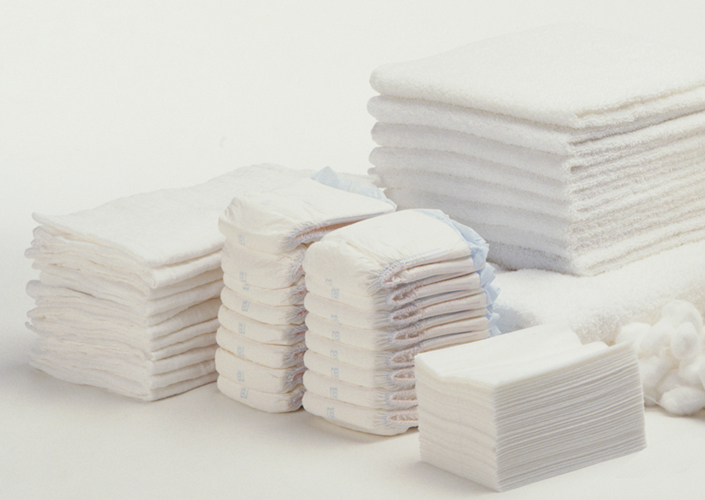
Buying “green” for your baby:
Eco-friendly choices for your baby could include organic cotton baby clothes and a natural wicker bassinet.
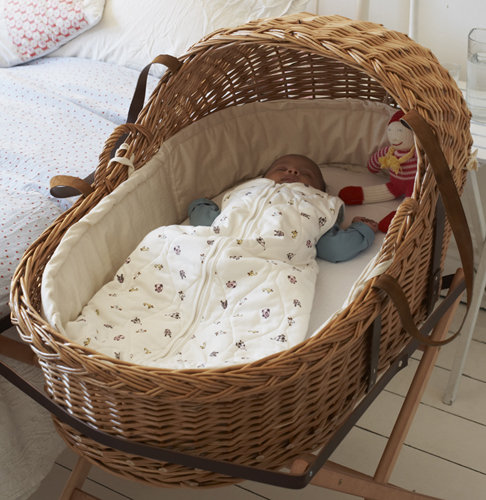
“Greener” options
Cleaning your baby:
Organic cotton balls are kind on a baby's skin and best for the environment.
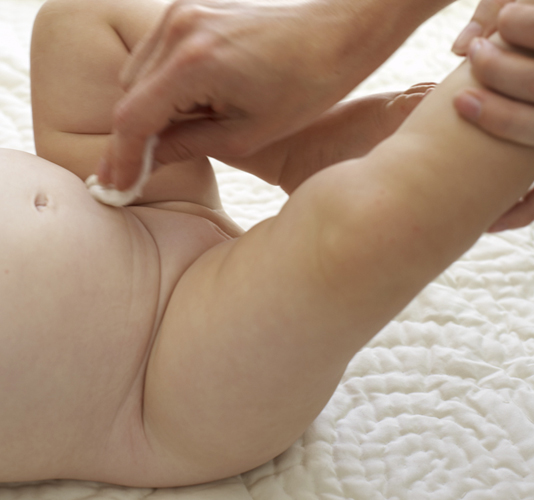
Diaper choices:
Opting for reusable diapers avoids adding to non-biodegradable waste.
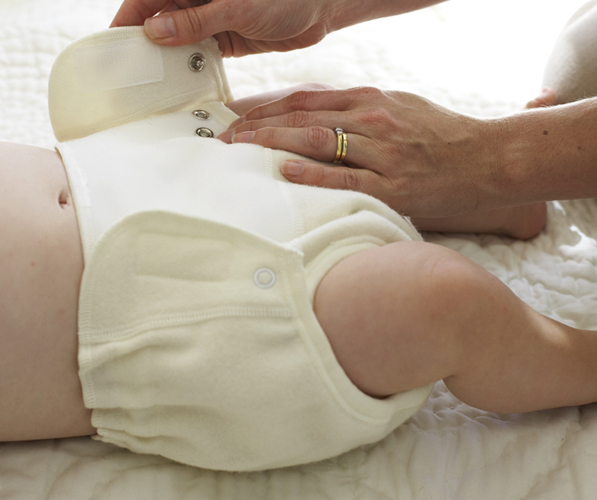
Gentle washing:
Using a soft washcloth on your baby's skin is preferable to throwaway wipes.
